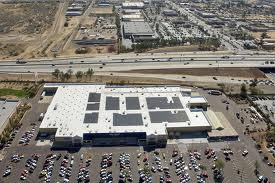The good and bad of investing in commercial real estate.
Commercial real estate, like residential real estate, can offer an advantageous return on investment. Commercial real estate can offer a larger financial reward, although it can also be a larger upfront financial investment.
There are many types of commercial properties. These include
- warehouses
- apartment buildings or complexes
- restaurant/retail space
- office building
- mixed use ( a variety of different businesses)
- industrial space
- land
Real estate in general can offer a nice return on investment. Commercial real estate has some definite pros and income potential. We offer some insight on both the pros and the cons of commercial real estate.
Pros of Commercial Property Acquisition
- Lease Terms. Commercial property offers a variety of lease types. A triple net lease is a lease type that can be written and contracted with many variables. The overall concept is that the landlord (lessor) pays nothing but the mortgage. All other expenses are paid for by the tenant (lessee). That means property taxes, improvements, etc, are responsibility of the lessee. As the lessor you collect your rent and pay your mortgage, again as long as the triple net lease is contractually set up that way.
- Income Potential. The annual return on your investment for a commercial is quite a bit more than the return on a residential property. You can expect to have a return of 6%-12% annually on the purchase price of a commercial property vs 1-4% on a residential property.
- Property Upkeep. Most often with commercial real estate, you will have a tenant. A tenant that operates their business. Their interests are in keeping up their image and maintaining a clean property where their business is located. There goals are to build their business, not to hurt it with keeping a dirty unkept business space. It takes some of the worry out tenants not taking care of your property
Cons of Commercial Property Acquisition.
- Larger Initial Investment. The initial upfront investment usually requires more than a residential property. Property improvements tend to require more capital on commercial properties. Commercial insurance premiums are larger than residential premiums.
- Risks. There are more risks and liabilities involved with commercial properties. Being commercial property tenants are operating businesses, more people visit the property. An increased amount of people, cars, and traffic equate to higher potential risks of property damage and other liabilities.
- Vacancies Can Be Costly. An empty rental space can be costly, even if it’s only one vacancy. Although lease agreements offer contactual security, unexpected and unwanted vacancies can prove to be costly.
- Variables. Although the ROI on a commercial property is a lot more, so are the variables involved. Variables offer a platform of opportunity, as well as potential capital losses. A commercial property is a big investment with many variables. If this variables are not addressed, what could be a capital gain can prove to be a capital loss. Understanding this is important when deciding what type pf property to invest your money in.
Acquiring real estate of any type requires capital and an initial investment. It is always smart to do your homework and know where you are at as an investor.
